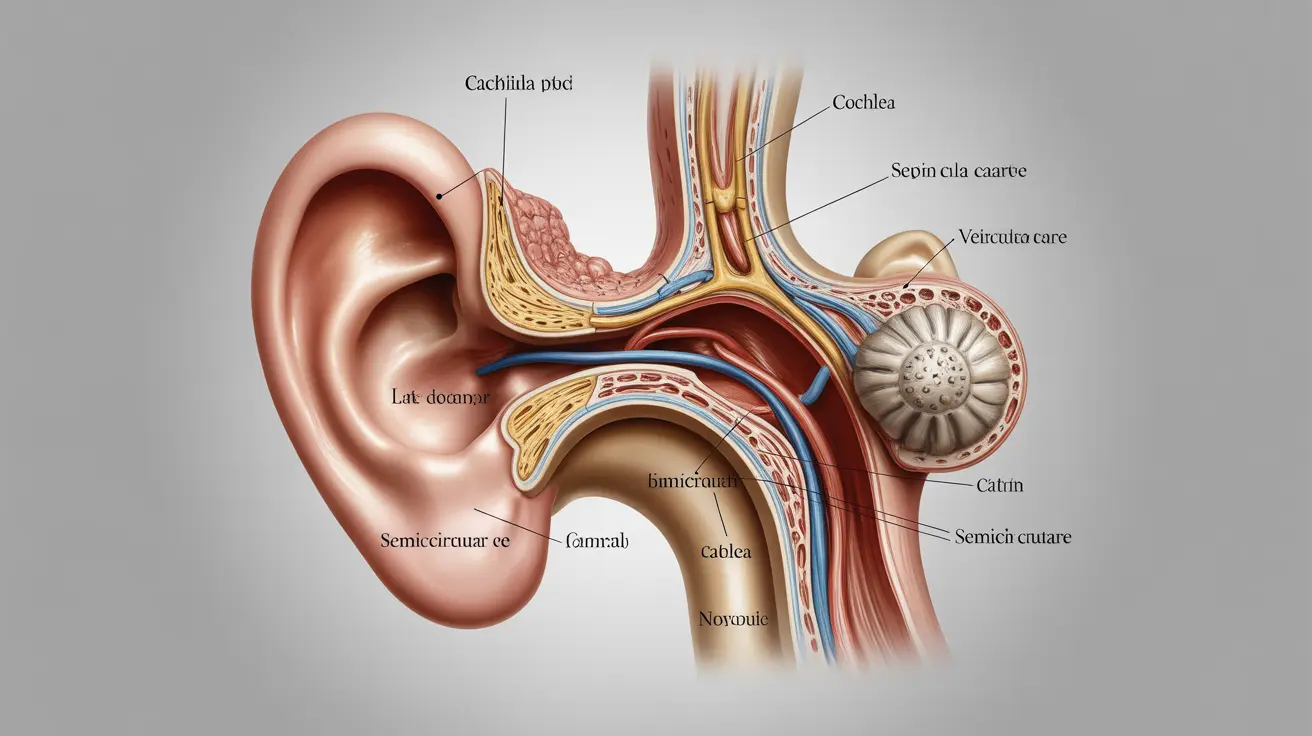Experiencing sudden dizziness and nausea can be both alarming and disorienting. These unexpected symptoms can strike without warning, leaving you feeling unsteady and questioning the underlying cause. While often temporary and benign, understanding what triggers these sensations and knowing when to seek medical attention is crucial for your well-being.
In this comprehensive guide, we'll explore the common causes of unexpected dizziness and nausea, when to be concerned, and effective ways to manage these symptoms when they occur.
Common Causes of Sudden Dizziness and Nausea
Several conditions can trigger unexpected episodes of dizziness and nausea:
Inner Ear Disorders
The vestibular system in your inner ear plays a crucial role in maintaining balance. Conditions like Benign Paroxysmal Positional Vertigo (BPPV) and labyrinthitis can disrupt this system, leading to sudden dizzy spells accompanied by nausea.
Circulatory Issues
Changes in blood pressure, particularly orthostatic hypotension (a sudden drop in blood pressure when standing up), can cause momentary dizziness and nausea. Heart rhythm irregularities may also trigger these symptoms.
Metabolic Factors
Low blood sugar (hypoglycemia) and dehydration are common metabolic causes of sudden dizziness and nausea. These conditions can affect your body's balance and overall function, leading to unexpected symptoms.
Warning Signs and Emergency Situations
While many cases of sudden dizziness and nausea are not life-threatening, certain symptoms warrant immediate medical attention:
- Severe headache with neck stiffness
- Difficulty speaking or facial drooping
- Chest pain or shortness of breath
- Loss of consciousness
- Persistent vomiting
- High fever
Managing Sudden Dizziness and Nausea
Immediate Steps
When dizziness and nausea strike suddenly, try these initial measures:
- Sit or lie down immediately
- Keep your eyes fixed on a stationary object
- Take slow, deep breaths
- Avoid sudden movements
- Stay hydrated with small sips of water
Prevention Strategies
To reduce the likelihood of future episodes, consider these preventive measures:
- Maintain proper hydration
- Eat regular, balanced meals
- Get adequate sleep
- Manage stress levels
- Practice good posture
- Move slowly when changing positions
Frequently Asked Questions
What are the most common causes of feeling nauseous and dizzy out of nowhere? The most common causes include inner ear disorders like BPPV, sudden changes in blood pressure, dehydration, anxiety, and low blood sugar. Migraine headaches and motion sickness can also trigger these symptoms unexpectedly.
When should sudden dizziness and nausea be considered a medical emergency? Seek immediate medical attention if dizziness and nausea are accompanied by chest pain, severe headache, difficulty speaking, vision changes, or loss of consciousness. These could indicate serious conditions like stroke or heart problems.
How can inner ear problems like BPPV or labyrinthitis cause sudden dizziness and nausea? Inner ear problems affect your vestibular system, which controls balance and spatial orientation. When this system is disrupted, it sends confused signals to your brain about your body's position, resulting in dizziness and often accompanying nausea.
What are the best ways to manage or relieve sudden episodes of dizziness and nausea at home? Rest in a quiet, dark place, focus on a fixed point, practice deep breathing, and stay hydrated. Avoid sudden movements and try ginger tea or over-the-counter motion sickness medications if appropriate. If symptoms persist, consult a healthcare provider.
Can dehydration or low blood sugar cause sudden feelings of nausea and dizziness? Yes, both dehydration and low blood sugar can cause sudden dizziness and nausea. These conditions affect your body's ability to maintain proper blood flow and cellular function, leading to these symptoms. Staying hydrated and maintaining stable blood sugar levels through regular, balanced meals can help prevent these episodes.




